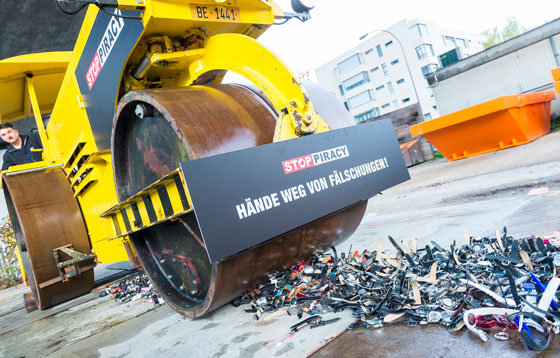
Swiss consumers enjoy ordering goods online from all around the world. Yet not everything which is delivered to Switzerland is legal.
Whether it is handbags, watches, jewellery or clothing, any attractive and enticing online offer has the potential of being a counterfeit. Of all consignments seized by customs, three quarters still originate from China and Hong Kong. With tourist traffic, however, it is different. Of all counterfeit goods confiscated from tourists, almost 60% originated from the EU and Turkey. Of these, close to 40% were handbags, travel bags and wallets, followed by watches, jewellery and glasses (almost 30%).
In comparison to last year, the number of consignments seized by customs has drastically dropped. In commercial goods trade, which also includes postal and courier consignments, there was a decline of close to 50% (1,633 consignments seized in
2017 compared with 3,125 in 2016).
Due to staff reductions stipulated by the federal government’s stabilisation programme, the customs offices cannot check as many consignments as before. Consequently, less counterfeit goods are being detected. Customs complies with legislative policies and works within the corresponding available resources.
However, the phenomenon of product counterfeiting itself has not diminished in scale or significance. Almost everything that has a good name is forged and copied. Every purchase of a counterfeit product results in financial loss for the original producer, and deprives the state of tax revenues and social security contributions. Consumer awareness about the shady side and background to counterfeit goods is thus all the more important. Stop Piracy employs diverse campaigns to inform the Swiss population about how counterfeit goods can be identified and how to avoid purchasing them. “It always starts with a decision to make a purchase, and that should be made with the knowledge of the risk that the product may be a counterfeit,” says Florence Clerc, head of the Stop Piracy Secretariat, “and customs authorities are concerned with ensuring compliance with the law.”
March 29, 2018


 News
News